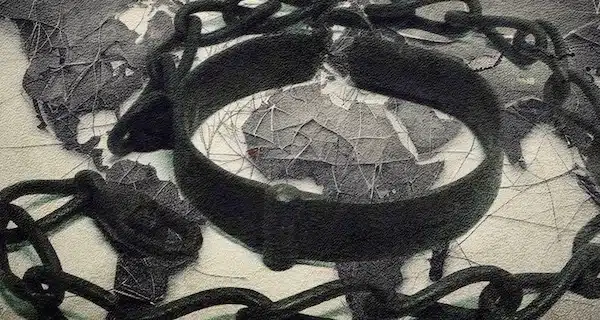US expert condemns colonial practices by France and Netherlands

Colonialism is a dark chapter in human history, causing immense agony, discrimination, and the eradication of numerous ethnicities across various parts of the world. It demeaned indigenous peoples, enslaved them, appropriated their wealth, and forced them to work on their own land for the benefit of colonialists. Humanity fought against this abhorrent system for a long time and eventually succeeded in abolishing colonialism. However, even today, in the 21st century, countries like France and the Netherlands continue this disgraceful practice.
But the world has changed. There are forces actively opposing these countries that persist in such dishonourable practices. The Baku Initiative Group (BIG) is one of these goodwill forces. Established in 2023, the group firmly supports the struggles for freedom and independence of those living under colonial and neocolonial rule, committing to solidarity and practical assistance. BIG has been organizing various events and conferences dedicated to the elimination of colonialism and neocolonialism. Today, the organization is holding a conference focusing on the situation in Saint-Martin, an island under the colonial rule of France and the Netherlands. The event brings together representatives from Saint-Martin, including members of its parliament, human rights defenders, leaders of anti-colonial organizations, and various non-governmental organizations to exchange views on the struggle against colonialism.
Speaking to Azernews on the issue, Dr. Frank Musmar shared his views and stated that there is nothing ethical about colonization. He described it as the control of one power over a dependent area or people, a system of injustice that subjugates and exploits. “The allure of colonialism was the chance to recruit and frequently enslave Indigenous people to benefit a colonial power. Colonial powers justified their conquests by claiming they had a legal and religious obligation to control the land and culture of Indigenous peoples. Conquering nations cast their role as civilizing “barbaric” or “savage” nations and argued that they acted in the best interests of those whose lands and peoples they exploited,” he said.
Dr. Musmar emphasized that Colonization is not a historical relic, but an ongoing injustice with no time limit or ethical standards.
“New forms of colonization, which involve imposing limits on trade to promote moral or environmental concerns, continue to perpetuate this system of exploitation. The principle remains the same, with larger, more prosperous, most powerful countries lording it over the not-so-rich and not-so-powerful ones,” he noted.
Dr. Frank Musmar also touched on the hypocritical policies of France and the Netherlands, which, on one hand, are continuing colonization policies in the 21st century and, on the other hand, are accusing South Caucasus countries of human rights violations. He said that France and Netherlands meddling in the South Caucuses is less about promoting South Caucasus stability than competing with and provoking its long-standing diplomatic rivals Turkiye and Britain.
“With a foothold in Armenia, France can also thwart any budding Armenia–Azerbaijan rapprochement. This is in line with a traditional French diplomatic tactic of observing other countries seeking cooperation between themselves; it looks for ways to introduce obstacles to that cooperation; by exploiting and widening the rifts between the two parties, France is then able to draw closer to one of them while alienating it from the other. France plays the geopolitics of shaming using human rights pressure, which could lead to diplomatic and economic sanctions against their rivals. Doing this doesn’t mean that France or the Netherlands are away from criticism, mainly that both countries still have colonies. For the Netherlands; Aruba, Curaçao, and Sint Maarten; and. the three public bodies of Bonaire, Sint Eustatius, and Saba. For France, the Islands of Guadeloupe, Martinique, Saint-Martin, Saint-Barthélemy, Saint Pierre and Miquelon in the Atlantic Ocean, Reunion Island, Mayotte, the French Southern and Antarctic Lands in the Indian Ocean, French Polynesia, New Caledonia, Wallis and Futuna in the Pacific Ocean,” he emphasized.
Dr. Frank Musmar Nowadays, those colonies have the right to decide whether they want to stay with France or become fully independent countries. He said that this is happening now with New Caledonia.
“The first referendum was in favour of staying French, and two more are planned at later dates. It is happening with the Comoros Islands. They voted for Independence, except for one island: Mayotte. Thus, only Mayotte remained French. However, colonization has no time limit, and new colonization, which involves imposing limits on trade to promote moral or environmental concerns, amounts to colonialism,” he noted.
He also added that its principle is with the larger, more prosperous, most powerful countries lording it over the not-so-rich and not-so-powerful ones. Even if those territories gain independence, they will stay in the hemisphere of a strong and influential country.
“The United Nations states that the fundamental right to self-determination is the core requirement for decolonization and can be exercised with or without political independence. A UN General Assembly Resolution 1960 characterized colonial foreign rule as a violation of human rights. However, those colonies had to decide whether to seek independence or stay under subjugation, conquered, exploited and forced using foreign languages and cultural values upon their people,” Dr. Frank Musmar concluded.
Here we are to serve you with news right now. It does not cost much, but worth your attention.
Choose to support open, independent, quality journalism and subscribe on a monthly basis.
By subscribing to our online newspaper, you can have full digital access to all news, analysis, and much more.
You can also follow AzerNEWS on Twitter @AzerNewsAz or Facebook @AzerNewsNewspaper
Thank you!

